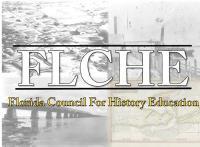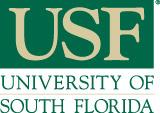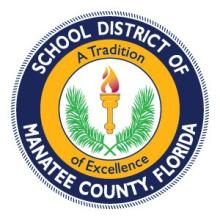
Warner University
ER #217 Contact: Laurie Boulden
Seeking the Seminole Indians with Warner University
Using locations in Central Florida relevant to the Seminole Tribe of Florida, a group of teachers will develop lesson plans for elementary studies of culture, Florida History, and the Seminole Wars. Once the lesson plans have been tested and revised, we will upload them to the TPS Teacher Network group "Teaching Native American History." The teachers who develop the lessons will train groups in local districts on how to access and use the lesson plans and resources. We will also present and share at state and national conferences.
ER # 149 Contact: Laurie Boulden
Exploring Florida and the Seminole Indians through Critical Analysis offers professional development for Warner University graduate and undergraduate students in education, as well as practicing teachers across Florida. The project is focused on preparing educators to effectively use primary sources and artifacts across a variety of classrooms. Attendees use Library of Congress resources and explore three sites in Florida related to the Seminole Indians. The goals are to model strategies to engage students, build critical thinking skills, and construct knowledge through the use of primary sources. Attendees each design a lesson plan to be implemented in their own classrooms.

Florida Council for History Education
ER #159 Contact: Tammara Purdin
It’s Elementary, My Dear: Primary Sources in the Elementary Classroom puts the necessary tools in the hands of elementary teachers so they are able to properly teach historical thinking strategies using primary and secondary sources from Library of Congress. This project generates lesson plans, constructed using LOC resources and based on specific grade level standards, for grades K-5.

Seminole High School, Pinellas County School Board
ER #156 Contact: Arren Swift
Then and Now: Primary Sources in Pinellas County prepares social studies teachers across Pinellas County to enrich their classroom instruction using primary sources in multiple ways.
Heritage Village, a Pinellas County owned and operated free entry park that includes historical structures from the Tampa Bay area dating back to the 1860s, provides access to the historic railroad depot, garage, church, and schoolhouse; a guided tour; and use of the community center room. Through this partnership, Library of Congress digital collections, along with the Heritage Village, afford the opportunity for content-rich, relevant place-based learning.
Participating educators will continue to use primary sources in their classrooms, select images from a scholarly website, and to share their knowledge of loc.gov and TPS methodology with colleagues, extending the overall reach and sustaining project impact for years to come.

University of South Florida
ER #126 Contact: Ilene & Michael Berson
Teaching with Culturally Specific Primary Sources in Puerto Rico and Florida to Build Social Capital among Preservice Teachers This project involves a partnership between the Universidad de Puerto Rico, Recinto de Río Piedras (UPR-RP) and the University of South Florida (USF). Through an inter-university collaboration, participants explore the use of primary sources to challenge mainstream assumptions and views of Puerto Rico and to support application of the content and pedagogic approaches into early childhood and elementary classrooms. Preservice teachers build skills in identifying primary sources that are developmentally appropriate for young learners, that the support development of critical literacy strategies and that serve as vehicles to explore cultural and historical concepts associated with Puerto Rico. Throughout the project UPR-RP and USF serve as cultural consultants to promote intercultural understanding and ensure that the professional development in both contexts includes diverse knowledge bases, experiences and perspectives.
USHMM "History Unfolded"
NCSS Social Education, 83(2), Crowdsourcing the Social Studies
Multicultural Perspectives, Images, Civic Identity, and Cultural Narratives of Puerto Rico: Using Intertextual Articulation to Develop Culturally Responsive Practices by Ilene R. Berson, Michael J. Berson & Annette López de Méndez

Manatee County Public Schools
ER #118 Contact: Elizabeth Smith
In collaboration with the Library of Congress and the Herald Tribune Media group, Manatee County Schools introduces primary sources to educators and their students. Manatee County Schools serve a diverse student population. Most of the individuals living in Manatee County, Florida are not originally from the area or even this country. This community history project helps to put Manatee "back on the map" in the minds of the students and residents by asking students to find, collect, interpret, and analyze national and local primary resources. The investigation of Library of Congress resources and local resources enhances the students' understanding of what makes a community.
Project Bibliographic Organizer

University of South Florida
ER #97 Contact: Ilene Berson
Traversing Rough Waters: Introducing Challenging Topics with Primary Sources in Early Childhood and Primary Grades. - As teacher educators committed to placing social justice and child advocacy at the heart of teaching and teacher education, this project highlights the importance of critically exploring with pre-service teachers the commonly held—yet often unwarranted—assumptions about young learners. Before they ever start school, children begin learning informally—from families, media, and peers—about key social issues like race, poverty, war, and gender. Once at school, they continue to learn about social issues, informally at least. We need to strategically prepare and support teachers to enact a curriculum that formally addresses these social issues so that children can learn to think about, analyze, discuss, and debate them using developmentally appropriate approaches. Children at risk typically have fewer opportunities to build their knowledge base of the world than more advantaged children, and using primary sources as informational texts with preschool and primary age students in Title 1 schools is especially important for helping young children to gain fluency and academic preparedness for ongoing school success.
The project team explores the use of primary sources to introduce challenging topics into early childhood and primary grade instruction. Primary sources from the Library of Congress are used to seize opportunities to use visual images with young learners to foster critical literacy skills. Young children not only are exposed to visual images but also taught how to "read" them, evaluating and critiquing them for accuracy, representation, and style. They use primary sources to pose critical questions related to voice, perspective, power, and privilege. When selecting informational resources, pre-service teachers receive guidance on considering the degree to which the content conveys information that children may not already know (i.e., problematize everyday events and make the ordinary uncommon). Moreover, pre-service teachers are supported in overcoming their own fears about emotionally-laden topics and consider how to highlight and frame a topic with an emphasis on life and resilience.

University of South Florida
ER #67 Contact: Michael Berson
Developing Integrated Learning Experiences to Foster Multiple Literacies with Primary Sources in Early Childhood and Primary Grades. - The project team explores the implementation of research-informed strategies to infuse primary sources into early childhood and primary grade instruction and foster emergent visual literacy and historical inquiry with young children. Primary sources from the Library of Congress are used to create high levels of interest and engaged learning using technology as a literacy facilitation tool. We seek to develop the skills of preservice teachers in identifying primary sources that may be used to explore cultural and historical concepts with developmentally appropriate strategies. Instructional practices for powerful and purposeful teaching of social studies concepts include use of primary sources to tap into students' prior knowledge and provide access to a wide range of historical information. Young students use primary sources to make comparisons, sequence events, identify cause and effect, and pose historical questions. Preservice teachers learn how to enhance historical inquiry of young learners by actively engaging the students in sifting, questioning, comparing, evaluating, and constructing their own interpretations of photographs. Not only does this promote young learners' critical thinking and metacognitive skills, but also this instructional approach sets a context for linking students' personal experiences in the present with the past and promotes multiple perspectives.
Educator's Guide to Social Media provides helpful suggestions on how teachers can optimize the use of social media as part of their personal and professional lives.